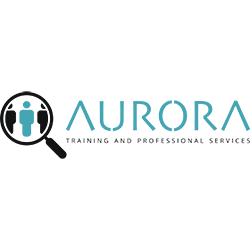In this post
Data Analysts: What Do They Do, and Why Are They In Demand?
Published on March 30, 2021
Data analysts make it make sense. Make what make sense, you might ask? Well… everything.
From numbers, to words, to images, almost anything can be considered data. Data analytics is a type of data science that aims to find the patterns, correlations or relationships in the data and analyse their meaning. They then use these insights to answer some big questions and inform some big business decisions.
What is data analysis?
Data-driven analytics is becoming increasingly important across all industries. Why? It allows companies to make more informed decisions. These decisions are based on the insights data analysts deduce from large sets of raw data, that otherwise would be pretty useless to the untrained eye.
“Put as simply as possible,” says data analyst Jesse Peterson, “The role of a data analyst is to take abstract information and transform it into usable information.”
A data analyst’s work can:
- Help create targeted content to the right customer group
- Optimise productivity and opportunities for improvement
- Ensure more objective decision-making takes place
- Help people innovate and explore with purpose
Data analyst responsibilities
“Data analysts take endless rows of seemingly random dates, numbers and dot points, then convert them into easily readable forms, such as graphs, charts, tables and dashboards,” Jesse explains.
To break it down a little more, the data analysis process generally follows these five steps:
Identify
Collect
Clean
Analyse
Report
1. Identify the data, define the question
What question are you trying to answer? What do you need to ask to make sure the right data is chosen to answers questions like:
- What are we doing well?
- What are we doing poorly?
- What are our opportunities for improvement?
- What trends are we seeing?
- Why has x changed?
2. Collect the data
Data collection can occur via a wide range of places, however, some common sources include:
- Surveys
- Website visitor tracking
- Buying datasets from collection specialists
3. Clean the data
Although often very accurate, computers aren’t perfect, so, cleaning data is essential. This means sifting through large datasets and making sure only relevant information remains.
4. Analyse the data
There are four main types of data analyses methods that you’ll use throughout your data analyst career:
- Descriptive
Describes the features of the data set so you can better understand how you should move forward.
- Diagnostic
Helps you find out why something has happened —- what are the correlations between values in the data
- Predictive
Uses past data trends to understand current or possible future trends in the data. Predictive analytics uses techniques from data mining, such as using data models, algorithms and machine learning techniques to make predictions about possible future events. - Prescriptive
Informs future decisions and course of action based on the trends found in the data. Often, this is reached with the help of machine learning techniques.
5. Report the results to stakeholders
Now that you have found the answers or at least, possible answers to the questions you defined in step one, you need to report it. This means putting your analyses into an understandable format so you can inform all and any stakeholders of your findings and advise them on how to move forward.
A day in the life of a data analyst
Jesse executes on these responsibilities in his day-to-day role in a marketing company:

A normal day in my life as a data analyst is going to be broken up into three key activities: briefing, research and presentation.
The first of these activities, briefing, is the simplest. I meet with a co-worker or stakeholder who has a question that they would like answered. Perhaps they would like to know how effectively our business appeals to different demographics, or perhaps they would like to know-how innovations in our business are being received by our clients.
Regardless of what it is, they have an abstract question, and my role is to take this abstract question, break it down and devise a way to answer it empirically using data.
This brings me to the second activity, research, which takes by far the largest amount of my time. I obtain all relevant data to the question at hand, then use my skills, knowledge and technology to break down this data and find out what it is really telling us.
Finally, the most often overlooked — yet extremely important — step: presentation. Improperly presented data can be misleading and deceiving. So, I work to present the data and my findings in a way that is as clear, concise and accurate as possible.
When this is ready, I once again meet with the one who initially came to me with the question. I explain my findings and do everything in my power to answer their initial question.
What do data analysts do in different industries?
Data analysts can work in a range of environments. Like any role, a data analyst’s job description will change depending on which industry you work in and whether you’re an entry-level or senior data analyst. Each industry will have its nuances, its challenges, and specific flow of operations.
Though used to mainly work in investment banks and private equity firms. But now that data is a valuable resource in almost all Australian industries, you can find them working in:
- Marketing
- Healthcare
- Retail
- Insurance
- Technology
Some unique and exciting data analyst career opportunities include:
Business intelligence analyst
A business analyst mostly works with data metrics related to business activities, such as:
- Sales
- Revenue
- Customer engagement
- Market information
You’ll focus on improving a business’ market activities and boosting their revenue, while growing authentic customer engagement. You’ll report your findings to key stakeholders so they can make informed business decisions.
Operations analyst
You’ll most likely be a part of a company’s operations team, and work closely with the operations manager. You’ll focus on finding data-informed strategies to help improve workflow and efficiency of internal business operations.
Transport Logistics Specialist Data Analyst
Here, you’ll use your data analyst skills to optimise how a business can store, transport and deliver large scale quantities of goods.
You’ll be relied upon to find the best paths and methods for products to be delivered, avoiding and problem-solving logistical nightmares like bottlenecking.
Medical and healthcare analyst
In this industry, you’ll work with medical data management systems to compile health care data. This data can be from a medical clinic’s expenses through to patient diagnoses. You’ll be in charge of controlling expenditure, finding ways to assist in providing optimal health care and improving patient experiences.
Data analyst skills
Being a good data analyst means you’ll need a strong blend of both hard and soft skills.
Your technical knowledge is essential to complete the analysis aspect of the role. Some critical skills you’ll need to have under your belt include:
- Using database tools such SQL and Microsoft Excel
- Understanding programming languages like Python or R
- Data visualisation through programs like Tableau or Jupyter Notebook
- A firm grasp of higher level maths and statistics
This is because you’ll be expected to present and justify your work to key stakeholders in an understandable and effective way. You’ll also want to develop strong:
- Critical thinking techniques
- Problem-solving skills
- Analytical skills
Who suits this kind of role?
“A person who enjoys a bit of number crunching, who prefers to work independently, and comes at problems with a critical eye” Jesse says.
However, he also warns that, “Trying to understand all types of information that are being collected can be overwhelming, let alone finding and extracting the very specific data you need.”
A hot tip from Jesse for all budding data analysts (no matter the industry) is to befriend your company’s data engineer ASAP — “They will be your greatest resource in understanding what data is being stored.”
Best Online Data Analytics Courses: Which One Is Right for You?
Interested in learning more about how you can take the next step to your new career as a data analyst? Discover which online data analytics course can help you start your career.
Training.com.au has a wide range of online courses from Australia’s top education providers that can get you ready to leap into this thriving industry.
Browse Data Science Results
Certified AI Engineer Professional
Did you know that Australia has experienced an astounding 300% growth in AI-related jobs over the past five years? With an estimate annual growth rate of 15%, according to SEEK, there’s never been a better time to step into this booming field with an a...
Certificate IV in Information Technology (Networking) ICT40120
Every part of our world is now connected – we live and work online. The call for highly skilled infrastructure experts is urgent, and this need is expected to increase for many years to come. New technologies, the sudden need for many to work from home...
Certificate IV in Information Technology (Programming) ICT40120
Every part of our world is now connected – we live and work online. The call for highly skilled infrastructure experts is urgent, and this need is expected to increase for many years to come. New technologies, the sudden need for many to work from home...
Certificate IV in Information Technology (Systems Administration Support) ICT40120
Every part of our world is now connected – we live and work online. The call for highly skilled infrastructure experts is urgent, and this need is expected to increase for many years to come. New technologies, the sudden need for many to work from home...
Diploma of Information Technology (Advanced Networking) ICT50220
Every part of our world is now connected – we live and work online. The call for highly skilled infrastructure experts is urgent, and this need is expected to increase for many years to come. New technologies, the sudden need for many to work from home...
Certificate IV in Business (Cyber Security) BSB40120
Every part of our world is now connected – we live and work online. The call for highly skilled infrastructure experts is urgent, and this need is expected to increase for many years to come. New technologies, the sudden need for many to work from home...
Certificate III in Information Technology ICT30120
Technology is now a fundamental part of our lives – there are screens we interact with every day. The use of technology will only increase in the coming years. The need for software developers, hardware administrators, infrastructure designers and supp...
Certificate in Time Management
Discover advanced time management strategies and techniques! Find out how to improve time management within your teams and wider company with our Certificate in Time Management. This in-depth course will help you to develop new time management skills a...
Certificate IV in General Insurance (NSW Only) FNS41422
Our FNS41422 Certificate IV in General Insurance qualification is designed to reflect the role of persons carrying out work in general insurance in a range of organisations. Individuals in these roles apply specialist knowledge and skills to work auton...
Certificate III in Retail (NSW Only) SIR30216
Our SIR30216 Certificate III in Retail qualification is designed to prepare individuals for varied roles across different industries and environments while exercising professional judgement. Throughout the program, students should develop a broad range...
Photography Essentials: Capture the Moment
Want to develop your artistic and technical photography skills? In Ulleo’s short course, you’ll learn how to get the most out of your camera and use light, colour and composition to create photos that make an impact. You’ll also learn how to refine you...
Certificate IV in Hospitality (Melbourne Only) SIT40422
Our government-funded SIT40422 Certificate IV in Hospitality offers comprehensive training, including RSA certification, Food Handler’s certificate, bar and cocktail making, beer knowledge, espresso coffee skills, food and beverage service, an introduc...
Diploma of Artificial Intelligence 11287NAT
Artificial Intelligence is no longer the future – it’s the key to driving success today. AI is transforming the way businesses operate, and those who understand how to harness its potential are leading the way. AIM’s 11287NAT Diploma of Artificial Inte...
Diploma of Artificial Intelligence 11287NAT
As companies across various industries race to integrate AI into their offerings, now is the perfect time to pursue a Diploma in Artificial Intelligence and stay ahead of the curve. By enrolling in this diploma, you’ll gain a solid foundation in...
Diploma of Digital Marketing 10931NAT
Gain essential fluency to succeed as a marketer in this digital age. Growth-minded professionals and business entrepreneurs can leverage versatile skills to execute digital marketing campaigns, win customers, and collaborate with marketing agencies. Th...
Diploma of Project Management BSB51415
The need to coordinate, lead and deliver projects from concept to completion can be a deciding factor in running a business or construction project effectively. With ACBI’s BSB50820 Diploma of Project Management, you get the best of both worlds. Our na...
Certificate IV in Work Health and Safety BSB41419
Gaining a nationally recognised work health and safety qualification can help you kickstart and accelerate your WHS career. It will equip you to join a growing WHS industry that offers stable job opportunities. WHS skills are needed are in a wide range...
Certificate IV in Training and Assessment TAE40122
If you’re looking to secure your career in the Vocational Education and Training (VET) sector, the TAE40122 Certificate IV in Training and Assessment is a great foundational qualification. By studying for this certificate, you’ll gain skills in educati...
Certificate IV in Social Media and Digital Marketing 11302NAT
Thinking of turning your time scrolling into a career? Studying the Certificate IV in Social Media and Digital Marketing will give you a foundation in using a wide range of social media tools and platforms. It’s the secret sauce for landing an entry-le...
Certificate IV in Health Administration HLT47315
As the largest employer and fastest growing industry in Australia, the healthcare sector is a financially and mentally rewarding career path. As a nationally accredited course, this Certificate IV in Health Administration will propel your career toward...
Online courses also available
Latest Articles
Agriculture Careers: What You Should Know in 2025
As one of Australia's most important industries, the agriculture industry offers great career opport...
Are Digital Skills the Key to Job Security in 2025?
The digital revolution is here, and it doesn’t care if you have a technical job or not — it’s coming...
How to Become a Chef in Australia: Complete Guide for 2025
The complete guide to becoming a chef in Australia. Learn how to get your start and make it in the h...
Want to read more?
The Complete Guide to Changing Careers
It happens all the time and you’re no different, so there’s no need to feel as though you’re on your...
Why Upskilling is the Best Way to Stay Successful in a Modern Workplace
The average Australian will hold 10 jobs before the age of 40, and will often work more than one job...
10 Workplace Health & Safety (WHS) Tips
Is your workplace safe? Implement these top 10 workplace health and safety (WHS) tips to improve you...










